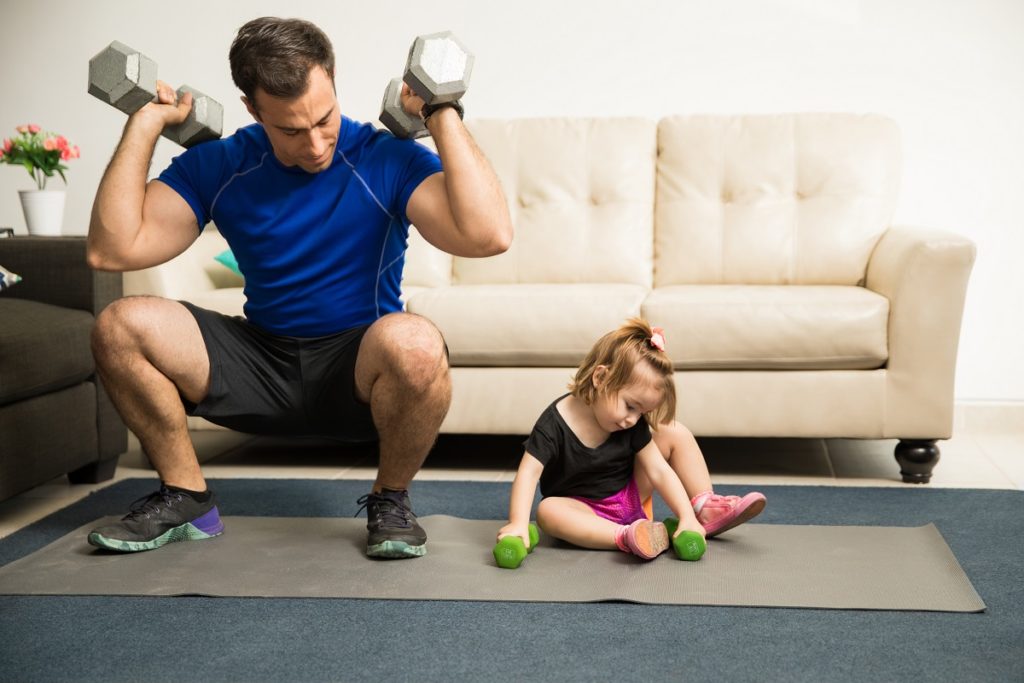Many changes happen to your body as you age, and coping with certain limitations isn’t always easy. It’s understandable why lifting weights isn’t at the forefront of your fitness goals. If you’re really determined to maintain your range of motion and live independently, then this is one activity that should be on top of your list.
Muscles deteriorate as you age, and neglecting to build them up and strengthen them can force you to ask for assistance in accomplishing simple tasks. The good news is that you can always start today and prevent your physicality from declining. If you’re doubtful that you can lift weights at your current age, then read on to discover why the answer is a resounding yes.
Do the Experts Agree?
The American College of Sports Medicine does. In fact, it recommends it for older adults to improve their overall health. People in the age range of 80 to 97 who underwent consistent weight training felt stronger and younger. They also enjoy better balance and knee strength, enabling them to go up and down the stairs with little to no assistance. There’s also the mental benefit of regaining motion initially lost due to injuries or health conditions.
The Centers for Disease Control and Prevention (CDC) echoes these findings and wants older adults to develop their strength to lower risks of falls, resulting in permanent disabilities.
Of course, you have to first consult your doctor before doing any strength training. It’s also advisable that you get the help of a fitness coach so that you can practice the right form and pace for your level. Taking these precautions will help you make the most of your gym sessions and prevent you from injuries. If you’re employing home care, make sure that your medic is present to ensure your safety throughout your training. What might feel like torture now will eventually become easier in the future.
What Happens When You Train?

One of the first benefits you’ll experience is an increase in endurance. You’ll notice that you can walk longer and more easily than you used to. Developing your leg strength also helps you avoid common disabilities that could keep you from walking in the future.
Along with your improved gait comes a boost in your everyday performance. Mundane tasks that used to take time and too much effort can now be done without a hitch. This includes grocery shopping and all the lifting that comes with it. There’s also the matter of doing simple movements like rising from a chair and taking something from the floor.
Perhaps most impressive among these is how weight training can increase your bone density and protect you from fractures. Your spine and hips can continue to support your weight and posture to stop the development of bone-thinning diseases. Your enhanced agility and balance lowers the risks of severe falls and the injuries that result from them.
People with diabetes will find that their glucose will be in better control once they start weight training. Research shows that older adults who resort to it enjoyed results that are as promising as those they experience when taking medications. Other benefits include arthritis relief, weight loss, enhanced sleep, and better moods.
What Challenges Will You Face?
Should you find yourself starting this endeavor past the age of 50, you’ll need to overcome unique challenges. This is especially true for people who suffered from knee and hip injuries and back pain. Conditions like hypertension will also require you to be alert throughout your weight training so that you don’t push yourself too hard.
The repetitions and exercise duration you enjoyed as a youth will also be significantly reduced. If you haven’t worked out in a while, you might feel nauseated after just ten minutes. It’s a good idea to get a physical therapist to work with you on your range of motion and to warm you up for a better chance of successful weight training.
There’s also the issue of which you should do first: weight training or aerobics? Experts claim that the former will kick start your aerobics in a good direction because it will give your lungs and heart the strength they need to cope with running and swimming exercises. If you’re determined to live an active lifestyle no matter your age, weight training seems to be the ultimate enabler.
Improve Your Quality of Life
Nothing feels better than being able to live your life the way you want to. Once you overcome the initial challenges that come with starting your weight training, it wouldn’t take long for you to see that it’s one of the best decisions you can make today.

